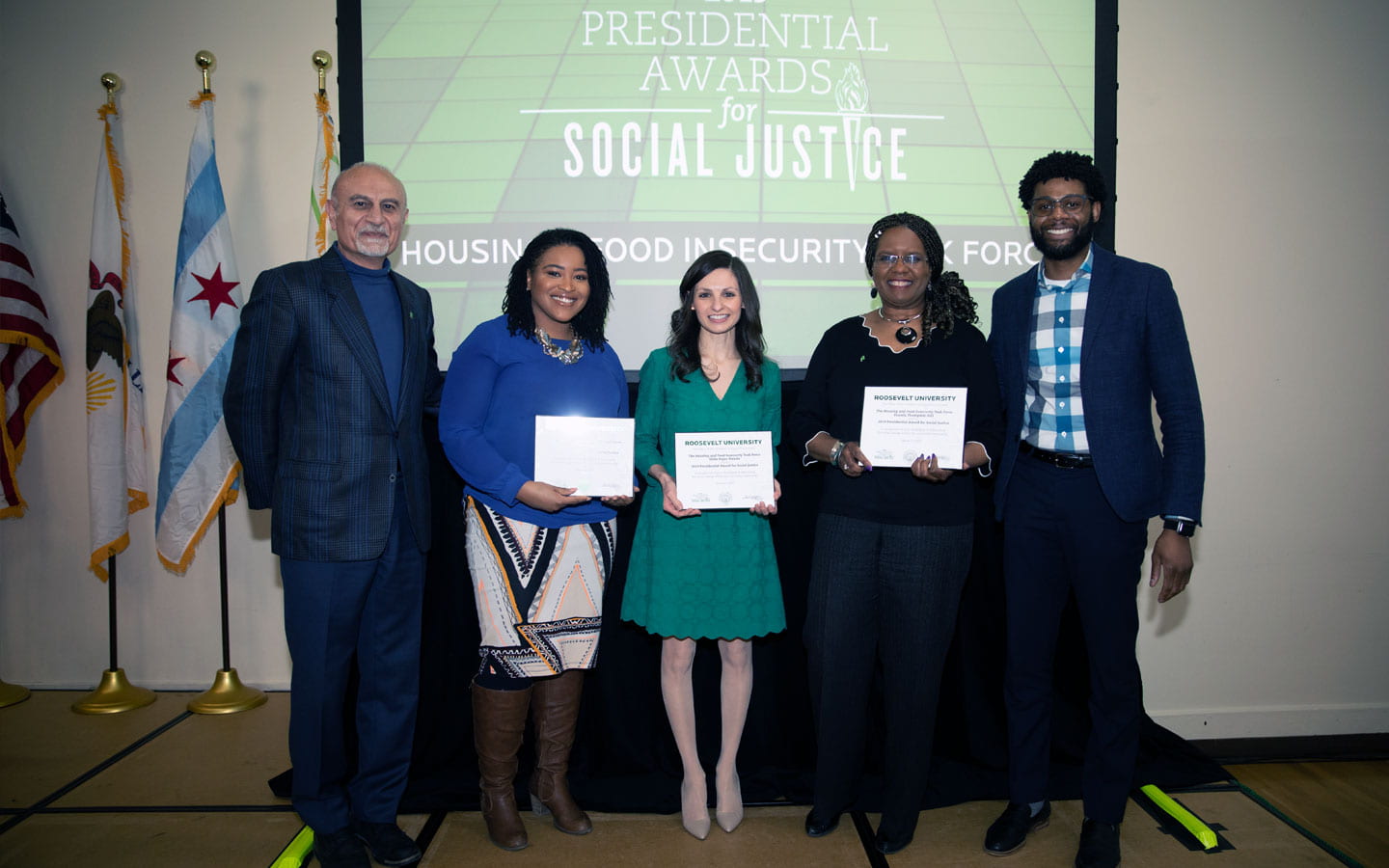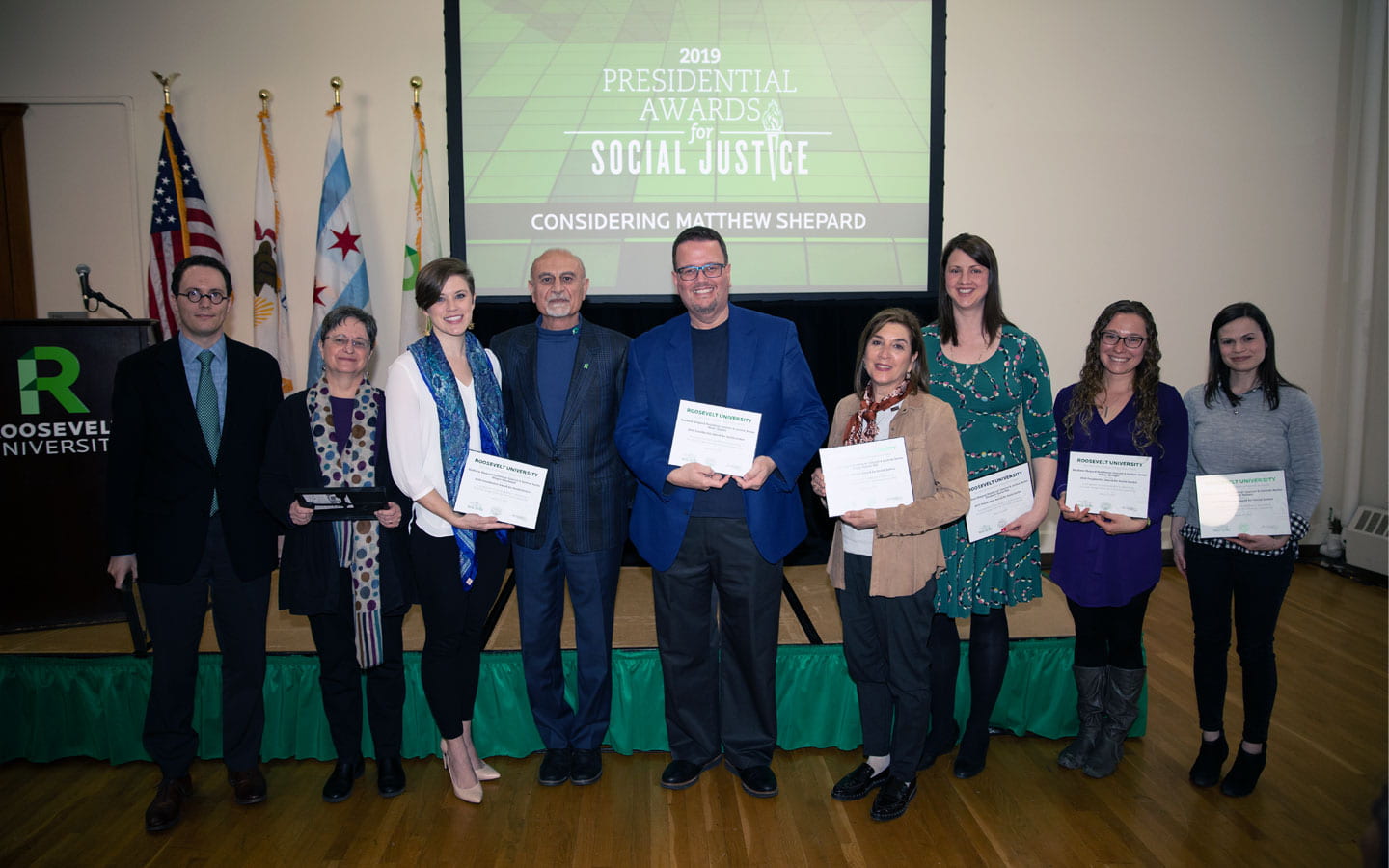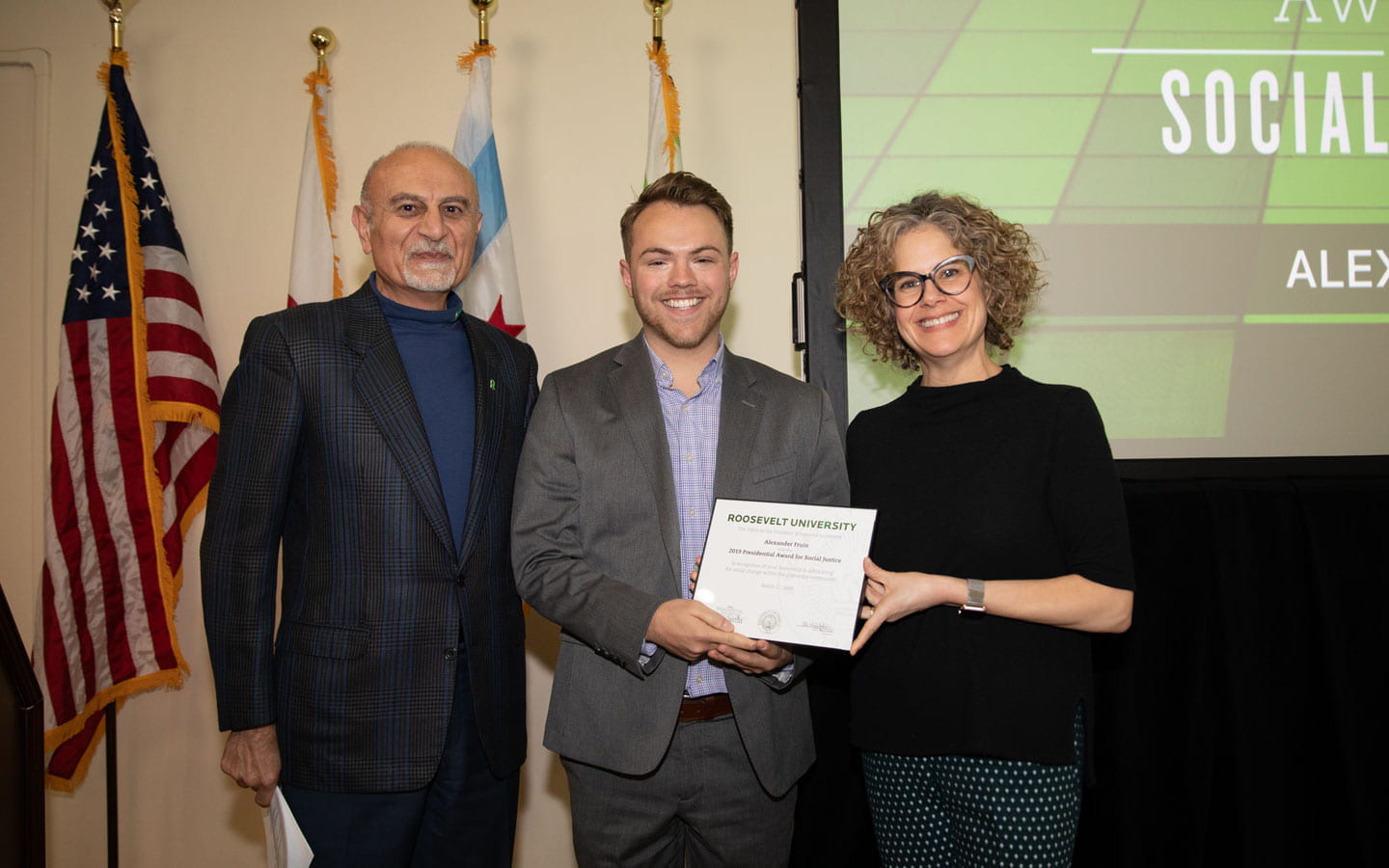The Inaugural Presidential Awards for Social Justice
New Award Salutes Work of 13 At Rooseveltby SUSHEELA BHAT-HARKINS

Roosevelt University is home to a host of staff, faculty and students whose memorable successes frequently advance the institution’s historic mission of social justice. That’s why Roosevelt University President Ali Malekzadeh, in recognition of a culture that consistently advocates for positive change, created the Presidential Awards for Social Justice. The inaugural winners were announced March 27, 2019.
The president recognized 13 members of the Roosevelt community, including two professors, one student and 10 staff members, for three separate projects that aimed to initiate positive changes both at Roosevelt and in society at large. “[These awards] celebrate those who have gone beyond routine work and demonstrated a commitment to social justice in the classroom, workplace and community,” stated Malekzadeh.
Work by three on new task force merits award

Staff members Charity Seaborn, Hilda Rojas-Duarte and Pamela Thompson-Hill received awards for the creation of the Homelessness and Food Insecurity Task Force, which facilitates a food pantry, clothing closet and an emergency housing space at Roosevelt’s Chicago Campus. The organization advocates on behalf of Roosevelt students who are unable to afford essentials like food, clothing and housing. The task force members forged a partnership with the Greater Chicago Food Depository for donations and brought in the state’s Supplemental Nutrition Assistance Program (SNAP) to assist students in applying for aid.
So far, over 200 students have benefited from the presence of these services. “We simply wanted to meet the needs of our students,” said Seaborn of the program. “The project just came together for us.” The task force continues to ask for the generous support of the University community so that the program can continue to serve Roosevelt students.
Awardees use the arts as social justice catalyst

Faculty and staff from the Chicago College of Performing Arts (CCPA) won awards for their work on the Considering Matthew Shepard residency, held in early 2019. The event used the arts as a social justice catalyst to raise awareness, conversation and engagement about hate and violence that continue to affect the LGBTQIA+ community. Hundreds of participants attended the residency’s lectures and performances.
The event was organized and coordinated by faculty members Cheryl Frazes Hill and Mark Crayton, and staff members Linda Berna, Allegra Montanari, Abbey Springer, Elizabeth Sustar Nye, Laura Bumgardner, Brittany Nelson and Andrew Zweibel. “This piece started the conversation,” said awardee Allegra Montanari, director of CCPA’s Center for Arts Leadership. “We hope it will spur those who participate to become positive change agents beyond the scope of these events.”
Honors student’s social justice work wins award

Finally, the sole student award was presented to Roosevelt honors student Alex Fruin (BMA, ’19). His training with the Obama Foundation Community Leadership Corps inspired Fruin to write his honors thesis on the importance of making diversity, inclusion and equity standard values in the performing arts community. Fruin went on to be the Class of 2019 student speaker at Roosevelt’s Commencement ceremony.
“[Fruin] has a clear understanding of the need for intersections between community development and the arts, including the responsibility of arts leaders to build diverse, equitable and inclusive organizations that reflect communities they serve,” said Marjorie Jolles, associate professor of women’s and gender studies. In a podcast interview with President Malekzadeh, Fruin said that he wants to someday take on a leadership role with a performing arts organization to implement and integrate his mission of social justice within the arts.
These awards demonstrate the thorough and authentic commitment to social justice that permeates the entire Roosevelt community, and highlight the talent, spirit and drive of both students and faculty. Roosevelt sends its congratulations to these well-deserving individuals, who will surely bring about positive change in their communities.
The Homelessness and Food Insecurity Task Force’s resources are made possible by the continued, generous donations of the Roosevelt University community. To make a donation of clothing or pantry items, please contact Nicole Barron, Interim Vice President of Institutional Advancement, at nbarron03@roosevelt.edu.
More in this section
Science labs foster collaboration and creativity
When plans were being drawn up for the new Wabash Building, they made sure to include state-of-the art laboratories to house the university’s chemistry, biology, biochemistry, health sciences and physics labs
Mixing it up with the city
Living, learning, working and volunteering in the Wabash building gives Sullivan a unique perspective on this glass and steel vertical campus.
Building as teacher
Professor Michael Bryson, PhD, has sweeping views about sustainability from his 27 years at Roosevelt.



